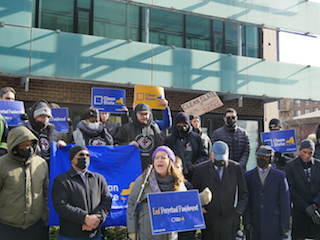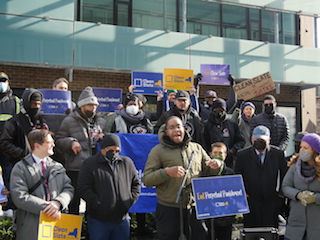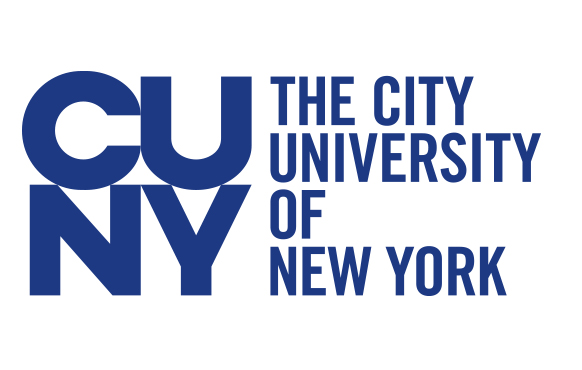Brooklyn, NY – RWDSU/UFCW Local 338 is part of a group of influential labor unions across the state renewing calls this week, for immediate passage of Clean Slate legislation.
Senate Bill 1553A and Assembly Bill A6399 — both stuck in committee — seek to seal the conviction records of some 2.3 million New Yorkers who remain largely denied jobs, housing, education and other vital opportunities because of a past criminal conviction.

“As representatives for workers, Local 338 RWDSU/UFCW knows all too well the many obstacles that working people can and do face as they pursue financial stability and economic independence,” Nikki Kateman, political & communications director of Local 338 RWDSU/UFCW, told LaborPress in an email. “Despite having paid their debts to society, those who have been justice involved face added obstacles in employment, particularly in accessing quality jobs that allow them to move up the career ladder.”
District Council 37, 1199SEIU and the New York State Nurses Association [NYSNA], all expressed support for Clean Slate legislation back in June.
“What more can we say? Clean Slate cannot wait,” State Senator and S1553A sponsor Zellnor Myrie [D-20th District] told advocates rallying at Restoration Plaza on Fulton Street earlier this week. “We know that there is a moral imperative for this bill. We know that if we are to be a society of redemption and not retribution, then we have to provide the tools for people to be active members of their community.”
The legislation is not even radical — beneficiaries of the proposed measures would still have to wait three years before they could have their convictions sealed for misdemeanor offenses — and seven years for felonies.
“Sealing a record means that you’re sealing it for civil purposes, so it is not accessible to private employers, landlords, certain different types of agencies that are not state criminal entities,” Emma Goodman, an attorney in the Legal Aid Society’s Special Litigation Unit, told LaborPress. “The records could still be accessible to law enforcement, district attorneys, courts, anything to do with the criminal system. Which is really irrelevant because these are old records. But it would still be available in theory for those purposes. So, it’s just removing it from employers and housing, mainly.”
According to the Brennan Center for Justice at NYU School of Law, people who get sent away to prison earn half as much upon release as those who are never incarcerated. Have a felony on your record and you’ll earn a quarter as much. Even having a misdemeanor somewhere in your past will sap 16-percent of your annual earning power. Ames Grawert, senior counsel and John L. Neu justice counsel in the Brennan Center’s Justice Program, says that all ends up extracting some $2 billion from poor communities annually.

“Our criminal injustice system was specifically created this way — this was by design,” Assembly Member and A6339 sponsor Catalina Cruz [D-39th District] said. “This was not a mistake. We’ve designed it in a way that does not allow them to move forward. Do you know why? Because the people affected look like you and me. The people [of color] affected who look like you and me will be perpetually poor because [the elite] want to keep it that way. So, don’t get it twisted — this isn’t a Republican, this isn’t a Democratic issue — this is a poor people’s issue and they want to keep it that way.”
Senator Myrie says the Clean Slate bills are best understood as economic and crimefighting boosters.
“There was a poll that came out this week — a statewide poll — that said amongst Democrats and Republicans the top two things they care about are fighting crime and getting jobs,” he said. “So, I say to Democrats and Republicans alike — boy, do I have the bill for you. Clean Slate is an economics bill. Clean slate is a public safety bill. There is no better crimefighting tool than giving people the opportunity to provide for their families, to get an education, to be affordably housed.”
Goodman hailed union support for Clean Slate legislation, saying, “They realize it doesn’t make any sense to exclude people with criminal records from [those] jobs. People with records are often extremely skilled laborers that would benefit the company if they could get the job, if the company would just hire them.”
Zaki Smith, a formerly incarcerated person who now is part of the Clean Slate coalition of advocacy groups, denounced the “perpetual punishment” that awaits anyone unlucky enough to be incarcerated in New York State.
“So, you may have thought that you received a two-year sentence, but you have actually received a life sentence,” he said. “The opportunities that they expect you to come home to from prison — getting a job, maintaining employment, getting housing, be a productive citizen — those very things that are essential for you to be a productive citizen are being denied.”
Several states including New Jersey, Utah and Connecticut have already passed similar Clean Slate legislation.
“The proposed Clean Slate legislation means eliminating unnecessary barriers, particularly in the workplace, to allow individuals to thrive without the harsh reality of being punished well beyond their sentence has ended,” Kateman said. “By giving New Yorkers a clean slate, we’re giving them a second chance.”



